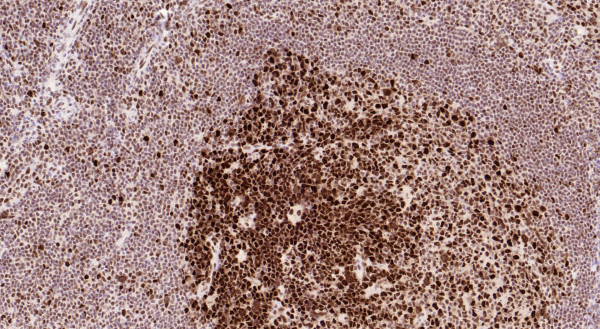Cookie-Einstellungen
Diese Website benutzt Cookies, die für den technischen Betrieb der Website erforderlich sind und stets gesetzt werden. Andere Cookies, die den Komfort bei Benutzung dieser Website erhöhen, der Direktwerbung dienen oder die Interaktion mit anderen Websites und sozialen Netzwerken vereinfachen sollen, werden nur mit Ihrer Zustimmung gesetzt.
Konfiguration
Technisch erforderlich
Diese Cookies sind für die Grundfunktionen des Shops notwendig.
"Alle Cookies ablehnen" Cookie
"Alle Cookies annehmen" Cookie
Ausgewählter Shop
CSRF-Token
Cookie-Einstellungen
FACT-Finder Tracking
Individuelle Preise
Kundenspezifisches Caching
Session
Währungswechsel
Komfortfunktionen
Diese Cookies werden genutzt um das Einkaufserlebnis noch ansprechender zu gestalten, beispielsweise für die Wiedererkennung des Besuchers.
Facebook-Seite in der rechten Blog - Sidebar anzeigen
Merkzettel
Statistik & Tracking
Endgeräteerkennung
Kauf- und Surfverhalten mit Google Tag Manager
Partnerprogramm
| Artikelnummer | Größe | Datenblatt | Manual | SDB | Lieferzeit | Menge | Preis |
|---|---|---|---|---|---|---|---|
| OPT-BSH-4018-100 | 100 µl | - |
10 - 14 Werktage* |
250,00 €
|
|||
| OPT-BSH-4018-1 | 1 ml | - |
10 - 14 Werktage* |
700,00 €
|
Bei Fragen nutzen Sie gerne unser Kontaktformular.
Bestellen Sie auch per E-Mail: info@biomol.com
Größere Menge gewünscht? Bulk-Anfrage
Bestellen Sie auch per E-Mail: info@biomol.com
Größere Menge gewünscht? Bulk-Anfrage
MSH2 (MutS Homologue 2) is one of the five key genes (besides MLH1, PMS1, PMS2, MSH6) of the... mehr
Produktinformationen "Anti-MSH2"
MSH2 (MutS Homologue 2) is one of the five key genes (besides MLH1, PMS1, PMS2, MSH6) of the Mis-Match Repair family (MMR). These genes encode MMR proteins, a group of nuclear enzymes that initiates repair of base-base mismatch, that can occur in DNA replication. MMR nuclear proteins form heterodimers, that bind abnormal DNA and initiates its removal. Loss of MMR proteins lead to accumulation of DNA replication errors in the proliferating cells. The above mentioned MMR genes have clinical interest, as they may mutate in families with hereditary non-polyposis colorectal cancer (HNPCC). About 3-5% of all colorectal carcinomas are related to MMR protein mutation. Carriers of an MLH1 or MSH2 mutation have a more than 70% lifetime risk of developing a colorectal carcinoma, with increased risk of developing endometrial carcinomas (50%). Staining for MLH1, MSH2 and MSH6 in colorectal carcinomas should be carried out in patients < 55 years-of-age or with a family history of these tumors. Control: Tonsil, Colon adenoCA with and without mutation. Protein function: Component of the post-replicative DNA mismatch repair system (MMR). Forms two different heterodimers: MutS alpha (MSH2-MSH6 heterodimer) and MutS beta (MSH2-MSH3 heterodimer) which binds to DNA mismatches thereby initiating DNA repair. When bound, heterodimers bend the DNA helix and shields approximately 20 base pairs. MutS alpha recognizes single base mismatches and dinucleotide insertion-deletion loops (IDL) in the DNA. MutS beta recognizes larger insertion-deletion loops up to 13 nucleotides long. After mismatch binding, MutS alpha or beta forms a ternary complex with the MutL alpha heterodimer, which is thought to be responsible for directing the downstream MMR events, including strand discrimination, excision, and resynthesis. Recruits DNA helicase MCM9 to chromatin which unwinds the mismatch containing DNA strand (PubMed:26300262). ATP binding and hydrolysis play a pivotal role in mismatch repair functions. The ATPase activity associated with MutS alpha regulates binding similar to a molecular switch: mismatched DNA provokes ADP-->ATP exchange, resulting in a discernible conformational transition that converts MutS alpha into a sliding clamp capable of hydrolysis-independent diffusion along the DNA backbone. This transition is crucial for mismatch repair. MutS alpha may also play a role in DNA homologous recombination repair. In melanocytes may modulate both UV-B-induced cell cycle regulation and apoptosis. [The UniProt Consortium]
| Schlagworte: | Anti-MSH2, Anti-hMSH2, Anti-MutS protein homolog 2, Anti-DNA mismatch repair protein Msh2 |
| Hersteller: | Optibodies |
| Hersteller-Nr: | BSH-4018 |
Eigenschaften
| Anwendung: | IHC (paraffin) |
| Antikörper-Typ: | Monoclonal |
| Klon: | BSR77 |
| Konjugat: | No |
| Wirt: | Rabbit |
| Spezies-Reaktivität: | human |
Datenbank Information
| KEGG ID : | K08735 | Passende Produkte |
| UniProt ID : | P43246 | Passende Produkte |
| Gene ID : | GeneID 4436 | Passende Produkte |
Handhabung & Sicherheit
| Lagerung: | +4°C |
| Versand: | +4°C (International: +4°C) |
Achtung
Nur für Forschungszwecke und Laboruntersuchungen: Nicht für die Anwendung im oder am Menschen!
Nur für Forschungszwecke und Laboruntersuchungen: Nicht für die Anwendung im oder am Menschen!
Hier kriegen Sie ein Zertifikat
Loggen Sie sich ein oder registrieren Sie sich, um Analysenzertifikate anzufordern.
Bewertungen lesen, schreiben und diskutieren... mehr
Kundenbewertungen für "Anti-MSH2"
Bewertung schreiben
Loggen Sie sich ein oder registrieren Sie sich, um eine Produktbewertung abzugeben.
Zuletzt angesehen







